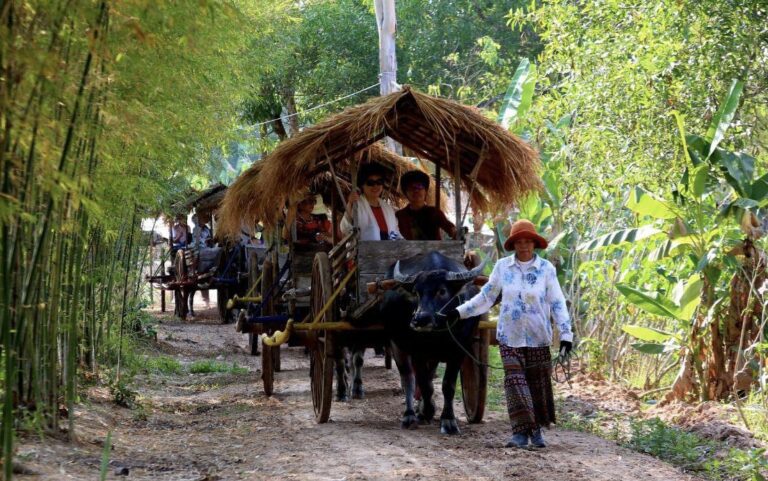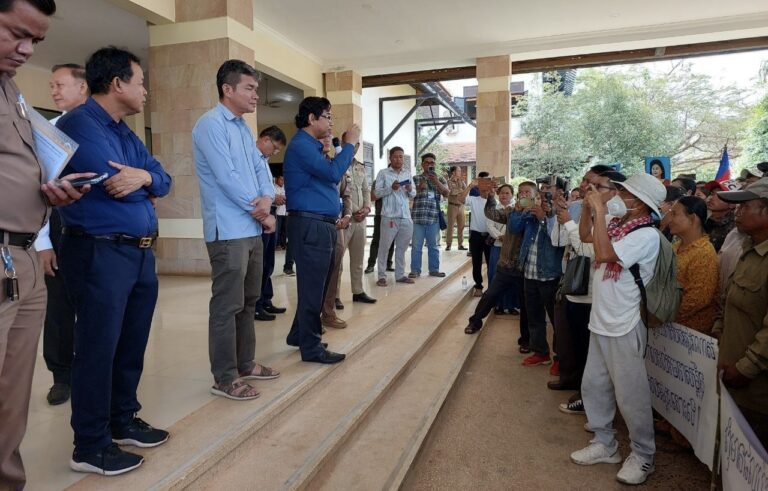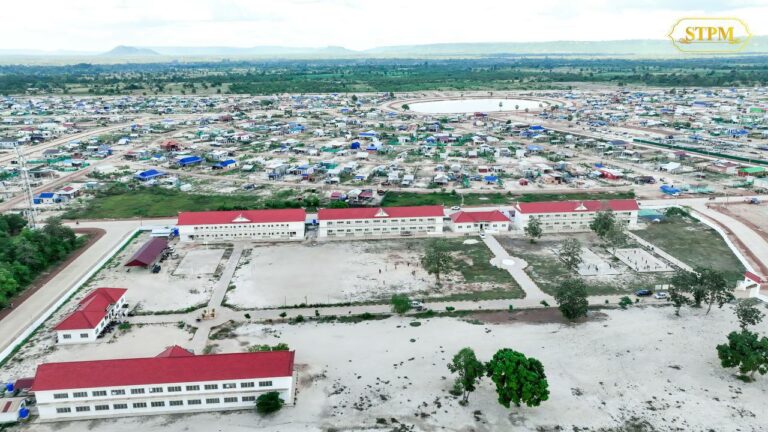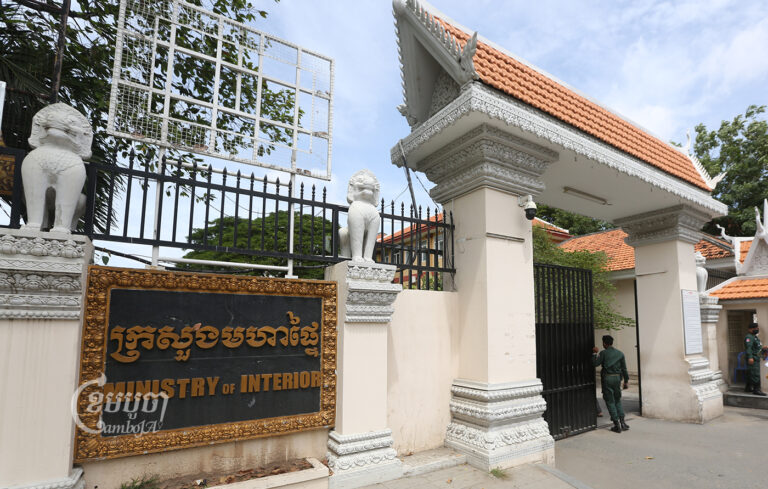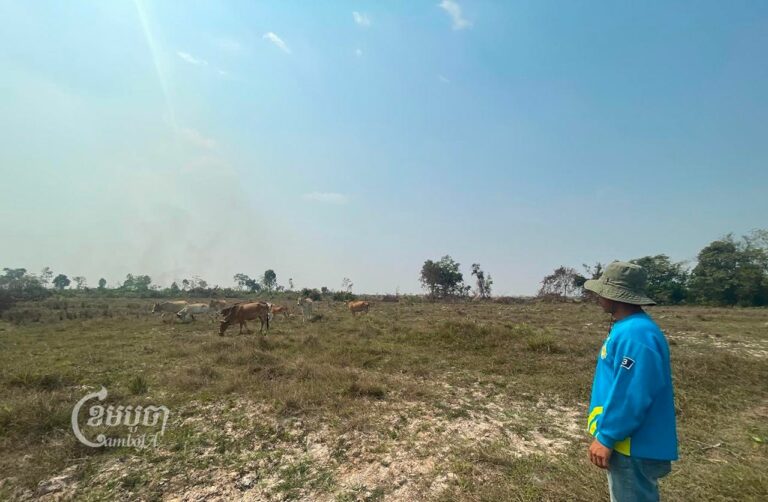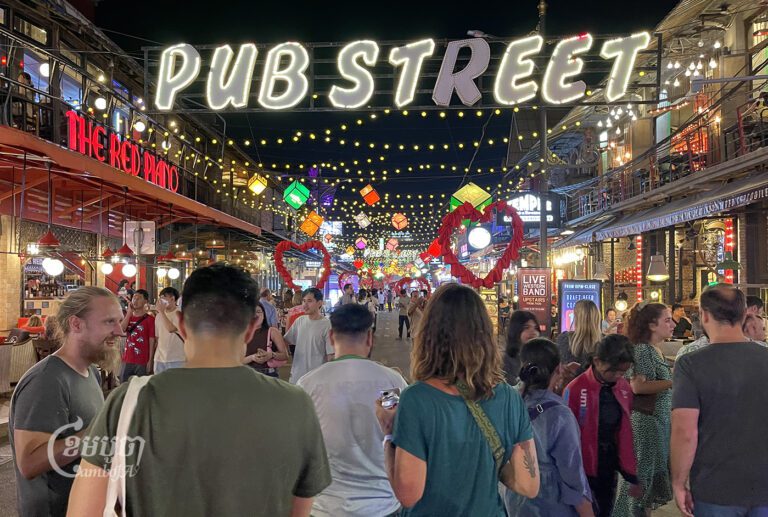Popular Siem Reap tourist attraction Cambodian Cultural Village closed its doors last weekend on account of low tourism arrivals during the COVID-19 pandemic, with former employees continuing to protest for unpaid benefits.
In October, the theme park, which is owned by prominent tycoon Pung Keav Se, announced that it would close the Cambodian-theme park and museum on November 7 because the coronavirus pandemic had brought tourism to a grinding halt. Government statistics show that international tourist arrivals have dropped close to 70 percent this year and domestic tourism has picked up only recently.
A group of theme park workers have been protesting unpaid wages and benefits since August 14, after authorities asked them to end an earlier protest in April. All the 318 employees at the theme park received unpaid wages and allowances last week, but said they were still to receive their indemnity payments for 2020.
Mom Sopheak, 35, who worked at the theme park for 17 years, was part of the protests and said she had finally received her unpaid wages last week.
“I received more than $5,000 in compensation from the company on November 7,” Sopheak said.
She added that around 70 workers, all of whom were active in the protests, had not received their indemnity payments for 2020. Sopheak added that employees who had not participated in the protests were accepting the compensation package offered by the company and not demanding outstanding benefits.
“We will file a complaint to demand some benefits that the company has not provided us yet,” said Sopheak.
Mean Mab, a 30-year-old mechanic, is one of the workers who did not protest against the company and said he was content with the compensation offered by Cambodian Cultural Village. He received $900 in unpaid dues.
“I accept this compensation,” Mab said. “So, I am not demanding any more compensation from the company.”
According to employee representatives, workers’ monthly wages were reduced by up to 20 percent when the COVID-19 pandemic began taking a toll on Siem Reap’s tourism industry.
During the August protests, workers had made three demands: payment of monthly wages and food allowances that the company has deducted earlier in the year, negotiate an agreement with the union, and keep the art office section of the park open and fully staffed.
Lim Sopheak, the now-former general manager at the Cambodian Cultural Village, said the company had paid all employees their outstanding dues, refusing to comment further because she didn’t work there anymore.
“Forgive me, I cannot provide information about the cultural village because since November 7 I am not working there,” said Lim Sopheak.
Lim Sopha, head of the Cambodia Culture Company Tourism Employee Unions which represents workers at the theme park, said 69 employees would continue to demand benefits that are owed to them.
“Our [group of] employees received some compensation but for the remainder of the compensation, will demand it based on the Labor Law,” Sopha said.
But for provincial officials the payments made last week were in line with the Labor Law and they considered the dispute closed.
Chan Sokhom Chetta, director at Siem Reap’s Department of Labor, said the company had already paid compensation for all employees, including those who were protesting against management.
“The company solved the compensation for all employees on November 6 and 7 and all employees also signed that they had received [compensation] from the company, Sokhom Chetta said.
He said that any outstanding demands made by workers were unlikely to be considered because they had already agreed to the dues given to them last week.
Siem Reap Provincial Governor Tea Seiha agreed with his Labor Department colleague, and said the workers needed to take into account the financial situation of the company during the pandemic.
“So, I think there is no need for any more protests and compensation has been paid to workers who were protesting,” he said.



